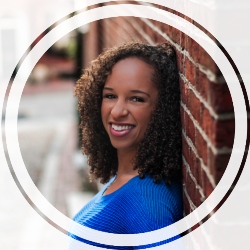‘Hi, We Need a Black Actor’: What It’s Like to Be on ‘The List’
Many actors of color know what it feels like to be on “the list” of people who get called to fill certain roles. The feeling is nuanced, and it changes depending on the theater’s actions, or inaction.
It’s a call (or an email, or a Facebook message) I’ve received dozens of times. It comes from a representative of a theater company I’ve worked with before, but haven’t heard from in a while. They’re reaching out because they’re doing Ragtime, or Hairspray, or Sister Act, or [insert show that requires a Black actor here]. And they’re so excited about their production. They’ve held auditions and they’ve cast all of the white characters. But they’re still looking to fill the role of [insert name of Black character here], and they’d love to know if I’m available.
I can envision many actors of color nodding their heads vigorously right now. At least in Boston, I think many of us are all too familiar with this phone call or message. And I completely understand the predicament of well-meaning predominantly white theaters who want to access shows like Hairspray or Aida, and in turn expose their audiences to some diversity.
I myself have been on the boards of theater companies, and a part of many creative teams, who’ve struggled to find the diversity required to put on certain shows. And I know what happens next when no one comes in to audition for the Black role, or the Asian role, or the Latin American role. It’s time to go to “the list.”
I am 100% positive that every director, music director and choreographer knows what list I’m referring to. It’s the list of actors of color that they know, from shows they’ve worked on or shows they’ve seen. As a director and choreographer, I’ve had to reach out to people on the list to try to fill in predictable casting gaps. And as a performer of color, I’ve had many people in charge ask me for my list. The subtext is always: Hi, you’re Black. You must know more Black people. Can you recommend anyone Black who might be able to do our show?
On so many occasions, I absolutely did the labor for these companies who are seeking actors of color. I’ve gone down my own diverse list of people I’ve worked with and reached out on the theater’s behalf to try to recruit them to any given show. And I never thought about it much until recently.
But on this year (and counting) off from live theater, I’ve had to reevaluate and reflect on my thoughts of “the list.” While having a list is, in many cases, a necessity when it comes to answering the consistent calls for more diversity, representation, and inclusion, some theaters seem to handle “the list” better than others. I’m going to attempt to break down why I think that is.

I can fully sympathize with theaters who are looking to cast Black roles, for example, when they haven’t had many Black people audition for their shows. How, as a theater, are you supposed to follow through with your mission to diversify when you don’t know many (or any) Black actors? How do you make any progress when only white people audition for your shows? Outreach does need to happen. Connections need to be forged and introductions need to be made. The list is essential.
I’ve gotten my start at many local theaters because of the color of my skin, and I’m not at all ashamed of that. Getting your foot in the door is the first step as any actor, and you’ve got to do what you can to break through. Either a friend recommends me as their Black actor friend, or a representative from a theater saw me in another production that featured Black characters, or maybe I showed up for an audition and was the only Black person there (and therefore got the role by default). Those are all ways I’ve ended up working with community, semi-professional and professional theater companies.
Once I’ve gotten my foot in any of those doors, I feel I have been given an opportunity, and it is up to me to show these theater companies, these directors, music directors and choreographers alike, who I am. Once in, I strive to show them that I am more than the color of my skin. I work hard. I bring forth a positive attitude, always. I’m open and willing to try anything. I’m reliable. And I hope that they can get to know my voice, my dance ability, and the other qualities I’ve worked hard on throughout my time working in theater. I’m hoping they’ll get to know me as a whole performer, not just a name on “the list”.
And this has luckily been the case with many of my favorite theaters. I may have gotten “in” because they were looking to fill a Black role, but they call me again (and sometimes again and again) because they think of me as a whole, and of all of my qualities. And I’m not naive — I know that my skin color is a factor. But my skin color (and sufficient ability) are not the only factors.
I got into a show at one of my favorite theaters because they were looking for women of color to fill out the ensemble. The director of the show had never met me, had never even seen me perform. But he knew I could sing, knew that I was married to an actor who had worked there, and he knew that I was a Black, biracial woman. So, I was in.
But after that show, after I made a point to get to know everyone at the theater as much as possible, and after working hard to demonstrate my other qualities, I was next called in for a peppy (traditionally white) role in a golden age musical. Sure, I’m positive that my skin color helped the theater fill out the diverse cast that they were looking to gather. But I felt I was seen as “Kira.” As a Black, biracial person, yes. But also as a whole person/performer with qualities that helped bring the role to life. I was provided with assistance to create an appropriate hairstyle for my natural hair. The costume designer provided me with tights that matched my skin color. I felt like a welcome and valued member of the show’s company and of the theater itself.
There are more theaters like that, and I love working for them. I feel seen and respected. I feel that they are actively trying to grow, change, and create more diverse and equitable theater environments. I also see people of color in other roles, behind the table and behind the scenes. It’s clear that these theaters understand that “diversity” doesn’t just mean filling required roles on stage.
However, for every theater company like the one I’ve just described, there are the others. And I’m sure any actor of color on “the list” knows theaters like these. These other companies are used to having white actors and white audiences. Those are the people who come out for their auditions and the people who come to see their shows. But, they desperately want to do shows like Hairspray, like All Shook Up, like Parade. Their hurdle is getting those two, three, or four Black characters who they know won’t show up for their auditions. So, they go to the list. Or they find the people of color they do know and ask for their lists. They fill those roles, go about their business, and bid farewell to those actors of color. And they will not contact them again until the same predicament comes up and it’s time, once again, to pull out the list.
These theaters unintentionally cater to the white actors they are so used to employing. Everyone on the board and everyone working behind the scenes is white. They don’t have wigs for Black hair. They hire hair and makeup people who are unfamiliar working with Black hair and skin. They don’t have any nude tights for darker skin lying around. The only work they are willing to do when it comes to diversity, equity and inclusion is to put on a show that features Black characters, and then get the Black actors required to fill the appropriate roles. That’s it.
At these theaters, I am never more than a name on the list. At least that’s how it feels. I know that I’ll only hear from these companies when they need to fill a Black role. And none of my other qualities seem to matter. All that matters is that I can sing and that my skin is not white.
I’ll never hear from these theaters if they’re doing Cabaret, Chicago, or Les Miserables. My name doesn’t seem to come up unless the show in question specifically requires a Black actor, or an actor of color.
Theaters like these, in my opinion, are not really looking to diversify. They are looking to do shows with Black characters once in a while to attempt to satisfy calls for diversity. Or worse, they’re just dying to do All Shook Up, for example, because their audiences love Elvis music. But their hurdle is getting those Black characters cast. (Yes, I was cast in a major professional production of All Shook Up — with a Broadway director and actors, and a Tony-winning performer — without an audition because they were desperate for Black ensemble members. Yes, my wigs were absolutely terrible. And no, I never heard from that company again.)
Now, I recognize that theaters are not obligated to wine and dine the Black people, or other people of color, who fill difficult-to-cast roles for them. However, if you’re a theater company comprised of 99% white people, and you’re committed to diversifying, wouldn’t it make sense to try to do all that you can to broaden your base? Make connections with people of color and make them feel valued? Like they belong? Re-evaluate your practices to make sure they don’t just cater to white actors simply because that’s what’s always been done?
It would make so much sense to show actors of color that you’re committed to making them feel like more than a name on the list. Then, they may just shout around town about their great experience at your theater, and encourage people on their “lists” to come audition for you. Word will surely get around. I know I love to shout about my great experiences.
For the record, I think the vast majority of all of these theater companies are well-intentioned, and I think they all care about bringing a wide variety of stories to their audiences. But for people of color who have ever been on these company’s lists, we have different gut reactions depending on how we get treated once we are in. And for me, at least, I can easily spot the difference. I am either a person on a list who is given an opportunity and is welcomed into a theater company’s family (in the name of actual diversity). Or I am just a name on a list who can fulfill a single production’s shallow needs.


So true…thank you for writing this…I have this conversation ALL the time with my husband….